The first 2008 Spring Flood Outlook was released February 22, 2008 and indicates the potential for minor to moderate flooding on streams within northern Illinois and northwest Indiana. The complete report can be viewed here.
We also urge those with river interests to view our Advanced Hydrologic Prediction Service (AHPS) web pages, for probabilistic flood outlook information through the spring, or anytime heavy rain occurs or flooding is possible.
The amount or severity of spring flooding depends on the following factors:
- Current snow depth
- Liquid equivalent of the snow
- Current river levels and streamflow
- Melting rate (how fast the snow melts)
- Future precipitation
- Soil moisture and frost depth
- Ice jams (can lead to flash flooding)
Additional Spring Flood Outlook information is available from the North Central River Forecast Center.
The next scheduled spring flood outlook with be issued on Friday, March 7th.
The annual Fermilab Tornado and Severe Storm Seminar will be Saturday April 5 at 1200 Noon and again at 600 PM. The program will be held at the Ramsey Auditorium at the Fermi National Accelerator Laboratory in Batavia, Illinois. The program lasts about 4 hours, its free and open to anyone. Seating is first come, first served. The program is hosted by WGN TV’s Chief Meteorologist, Tom Skilling and is put on by the Fermilab Visual Media Services Department.
This year’s speakers include;
Tom Skilling - Chief Meteorologist WGN TV
Dr. Joseph Schaefer - Director of the NWS Storm Prediction Center
Dr. Mary Ann Cooper - University of Illinois, Chicago
Brian Smith - Warning Coordination Meteorologist, Omaha, NE
Ed Fenelon - Meteorologist in Charge, NWS Chicago
Gino Izzi - Lead Forecaster, NWS Chicago
Jim Allsopp - Warning Coordination Meteorologist, NWS Chicago
More information to come!
SKYWARN TRAINING
NWS Chicago (KLOT) Severe Weather Spotter Talk Schedule
NSSL PODCASTS - Flash Floods
Estimating Precipitation and Improving Flash Flood Forecasting with Radar Kevin Kelleher, Deputy Director of the NOAA National Severe Storms Laboratory and Dr. Suzanne Van Cooten, NSSL Research Hydrometeorologist, discuss using radar to estimate precipitation and improve flash flood forecasting. Recorded 8 November 2007
- Section 1 - Research in using radar to estimate precipitaton (2:44)
- Section 2 - Research on flash flood forecasting and a demonstration project in the southeast United States (6:14)
- Section 3 - Research on debris flow and mudslides (1:51)
- Section 4 - How NSSL’s research benefits forecasters (2:08)
- Section 5 - Kevin discusses his career path (4:08)
- Section 6 - Suzanne discusses her career path (5:32)
LISTEN TO THE COMPLETE PODCAST RUNTIME 23.01 TEXT TRANSCRIP
MARITIME NOTES:
Dar’s Maritime Institute to offer new courses for seamen
By MOHAMED ISSA MOHAMED
Special Correspondent
The Dar es Salaam Maritime Training Institute has introduced new training programmes to allow workers to keep abreast with international trends.
Two new courses were launched ordinary seafarers, officers at ports and onboard ships, cargo clearing and forwarding agents and ship fleet-freight operators.
Until recently, workers at sea and lake transport regimes in the country were employed without necessarily having qualifications.
But the country’s increased trade with advanced shipping nations like China, Netherlands, the United Kingdom, Japan, and the United States has put it under pressure to adopt international acceptable employment guidelines or risk its seamen and port being blacklisted.
According to Dar es Salaam Maritime Institute principal Thomas Mayagilo, the two new courses will add life to the industry.
The logistics and transport international diploma will provide a seamless transport convenience whose holder will professionally be able to arrange for a cargo from a port of loading abroad destined to inland Tanzania,” he said.
He added that the system would help the delivery of cargo without delay and the importer will not be obliged to travel all the way to Dar es Salaam to chase his merchandise.
Seafarers will train on fire fighting techniques, response during life-threatening instances at sea or inland waters, safe cargo deployment on decks or hatches among other skill-instigated job requirements.
Many seafarers get injured or are the cause of fatal ship accidents due to lack of proper training before they are signed in to man the vessels.
Tanzania liberalised the water transport sub sector in 1990s. The country has in its jurisdiction an 800-km shore strip facing the Indian Ocean and several inland water bodies.
The institute is among a few such institutes in sub-Saharan Africa mandated by the International Maritime Organisation to offer marine engineering courses and certificates of competency.
Tanzania had until recently 320 marine engineers, most of them graduates of the institute. About 62 per cent of them work aboard locally registered ships; seven per cent on shore while four per cent on board foreign ships.
Tanzanians risked a forfeiture of 420 international jobs after those who worked with international shipping lines were found to have not undergone courses that conform to the standards of training, certification and watch keeping (STCW).
Tanzania later adopted the STCW signed the International Ship and Port Security (ISPS) Code.
Established in 1991, DMI took over the responsibility of designing the STCW and ISPC oriented training programmes. It trains company security officers, ship security officers and port security officers as a result.
Besides offering advanced diploma courses in marine transportation and engineering, the institute trains deck officers and marine engineers at the operational level and other shipboard personnel at the supporting level.
The basic operational objectives of DMI being however to train seafarers to the requirements of the 1978 international convention on “Standards of Training Certification and Watch keeping for Seafarers as amended in 1995, it trains students up to level of class 3 Certificate of Competency for both engineers and deck officers.
In 1996, the now East African Community designated the Dar es Salaam Maritime Institute as the regional maritime training centre.
The institute, funded by the Tanzanian government, and the Norwegian International Development Agency, admits students from all over including Uganda, Zimbabwe, Zambia, Malawi and Namibia among others.
Jeanne Walls, 22 Feb. 2008
The annual National Maritime Festival will be held this year at the Newcastle foreshore on SUNDAY 12 OCTOBER 2008. Erica Townsend has been appointed as the new Event Manager. Erica has commenced planning for the Festival and the Grand opening of the Maritime Centre.The National Maritime Festival celebrates Newcastle’s rich maritime history and is not only the longest running event but one of Australia’s largest maritime festivals.
This year promises to be the best Maritime Festival “Spectacular” to date and will herald The Grand Opening Exhibition of The Maritime Museum at Lee Wharf, Honeysuckle - this $800,000 exhibition is currently in progress with Convergence Design Consultants/Melbourne .
Newly appointed Event Manager for 2008 is Erica Townsend who coincidentally is the daughter of the late Captain Kenneth Hopper OAM. Captain Hopper was Newcastle Harbour Master from 1966 till retirement in 1980. In 1973 Captain Hopper was the founder and first President the Regional Maritime Museum and was responsible for resurrecting The Newcastle Harbour Regatta (now Festival). The ‘Regatta’ was first held in 1984 and was disbanded during World War II.
Erica comes with a heartfelt passion for the Maritime Festival as well as 25 years in Hospitality, Event Management and Tourism. Erica returned to the Hunter in 2000 to open and manage Len Evan’s iconic hotel in the vineyards, The Tower Lodge.
Erica says “this years Festival will be especially significant with the Grand Opening of the Maritime Museum Exhibition which will proclaim the opening of the National Maritime Festival weekend . The fun-for-all harbour celebration will include many of the favorite on-shore and on-water events and activities of past years as well as a few ‘spectacular’ surprises.”
A FREE shuttle service will be running on the day to transfer visitors and spectators from Various points along the foreshore in a continuous loop from 10am till 5pm.
It is expected that this unique and growing event will attract visitors from around the State including the Upper and Lower Hunter, Central Coast, Mid North Coast and Sydney Regions.
For more information and PHOTO opportunities please contact: Event Manager ERICA TOWNSEND 0411 461 075 Event Director JEANNE WALLS 0412275 707
Life and Death on the Bering Sea Deadliest Catch Alaskan Storm for Xbox 360 and PC
SEATTLE (February 26, 2008) - Battle 40-foot waves, storms, ice and a nearly 100-percent crewmember injury rate in the dangerous hunt for undersea riches on the Bering Sea with the new video game Deadliest Catch Alaskan Storm, to be launched on the Xbox 360®video game and entertainment system from Microsoft and PC in April 2008.
The game was inspired by Sig, Edgar and Norman Hansen - three brothers who have made their living crab fishing on the Bering Sea aboard their family's fishing vessel, the Northwestern. The Hansen brothers started game development with Liquid Dragon Studios in October 2005.
Shipping firms neglecting safety as top priority: NMSA
By MADELEINE AREK
SHIPPING companies have in the past, had a tendency of turning a blind eye to the safety of their vessels, putting the lives of the travelling public at risk.
The laxity of PNG’s shipping laws and of enforcing agencies in policing these laws, had allowed companies to operate unseaworthy vessels as well as bringing in very old ships and “treating us as a dumping ground for old vessels” National Maritime Safety Authority general manager Chris Rupen, said yesterday.
According to Mr Rupen, because monitoring agencies were ill-equipped to effectively carry out regular safety inspections, these companies got away with using vessels that were not seaworthy, often putting the lives of the travelling public and of thousands of kina worth of cargo at risk.
While it was not the intention of NMSA to delay the shipping operations of companies, it was important that regular safety checks were done so that the safety of the travelling public was not compromised, Mr Rupen said.
He said his office had the responsibility of policing shipping rules and regulations and that was what they have been doing over the three years since their establishment in 2006.
“Our officers carry out routine checks on all shipping vessels. Sometimes the deficiencies are minor and take a few minutes to rectify. At other times, they take a few hours and we tell the master to rectify the situation. If the deficiency is major, we ground the vessel,” he said.
“We work with these companies and not against them. We do what we do to make them more responsible and often, they are happy with what our officers do and comply.”
He said it was their duty to make sure shipping companies took responsibility of the safety of their ships; that they did not let defects go by.
“We do random inspections on all shipping vessels, foreign and local. On foreign vessels, we carry out port state control inspections while on domestic vessels, our officers’ carry out flag state control inspections. These checks are done to make shipping companies responsible,” he said
RS
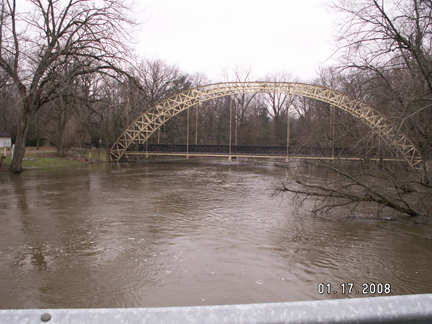
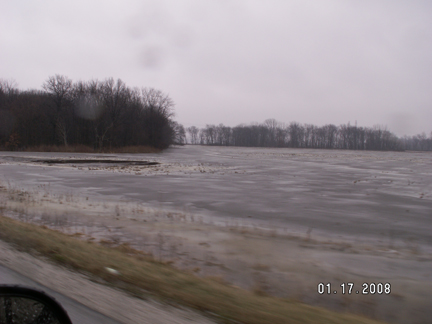
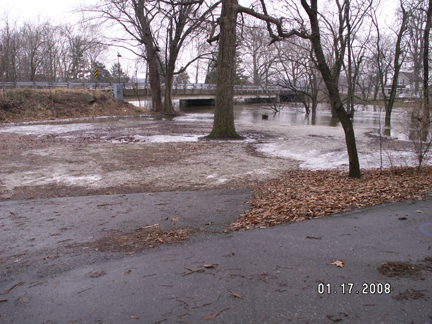








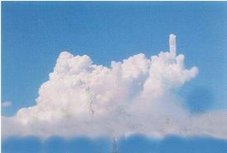
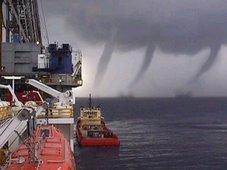
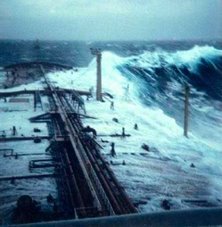
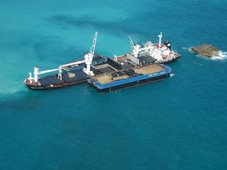
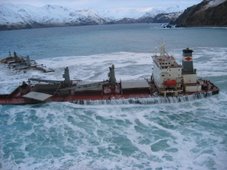
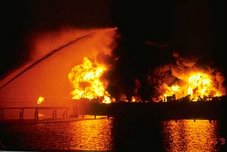
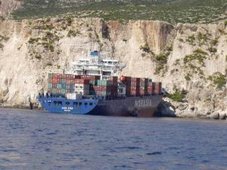
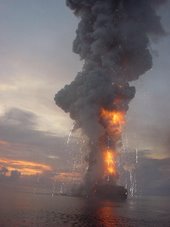

![Validate my RSS feed [Valid RSS]](valid-rss.png)
No comments:
Post a Comment